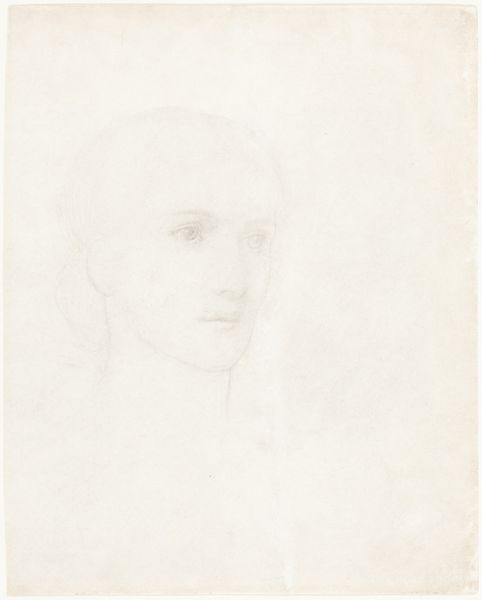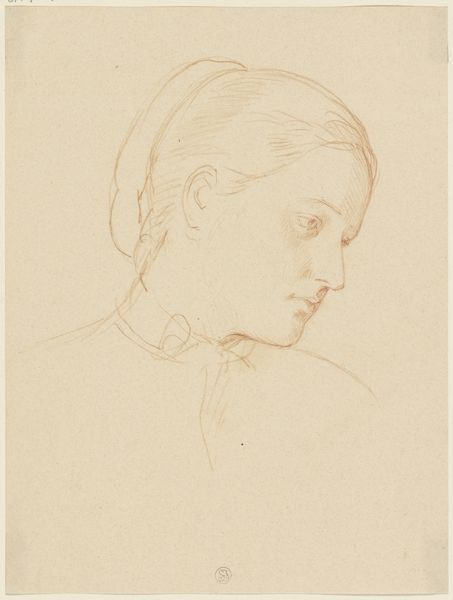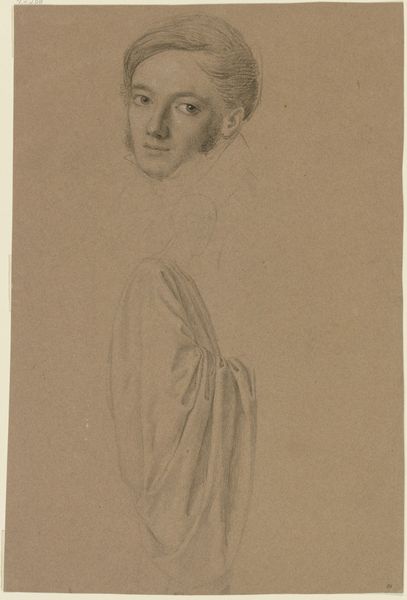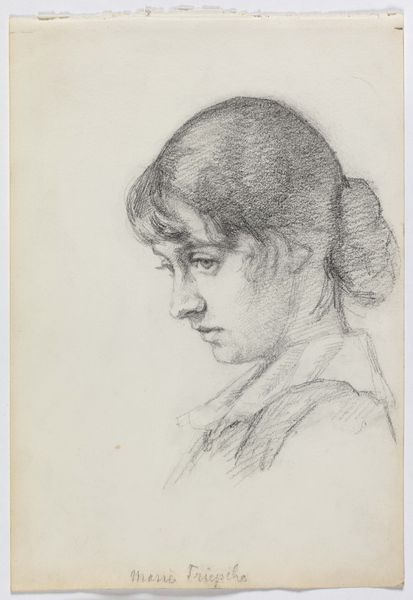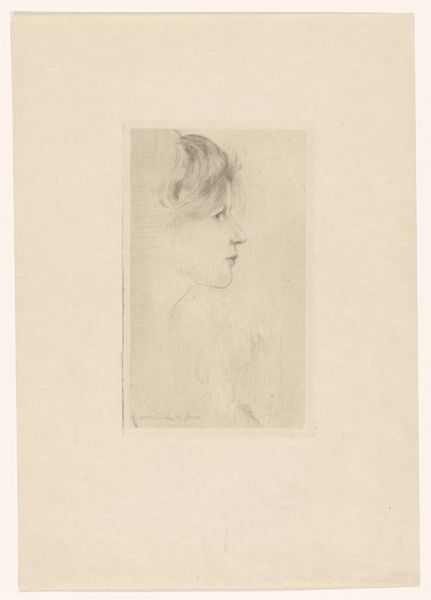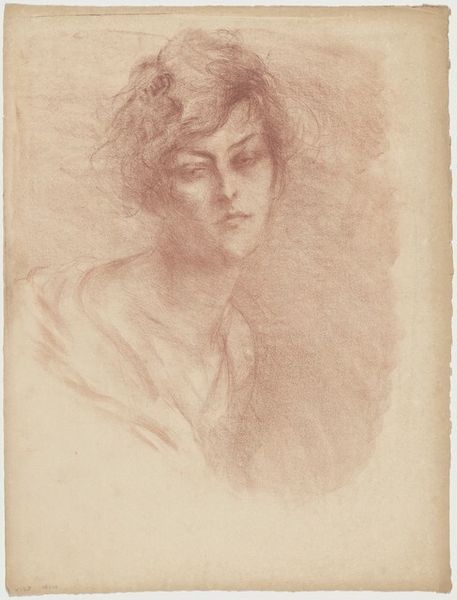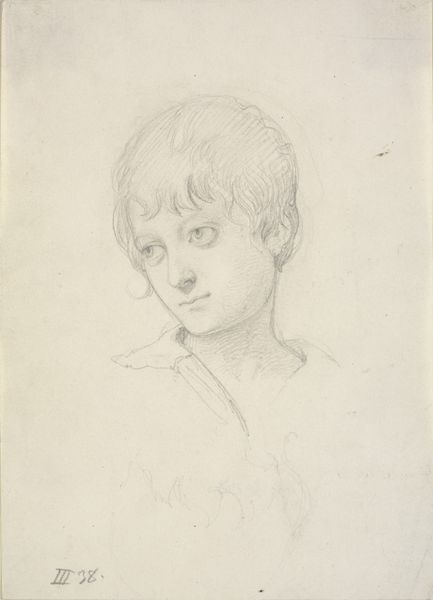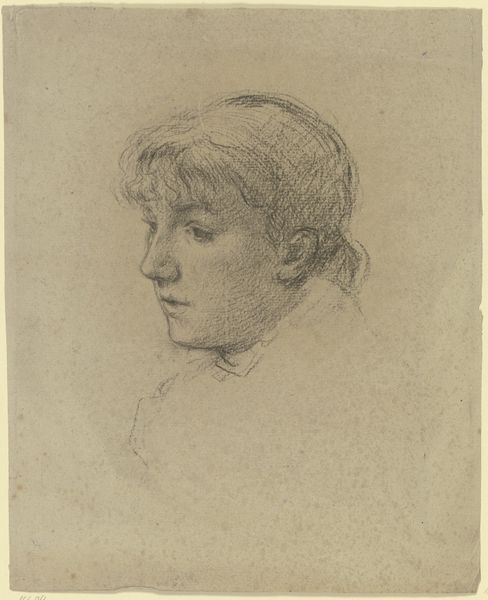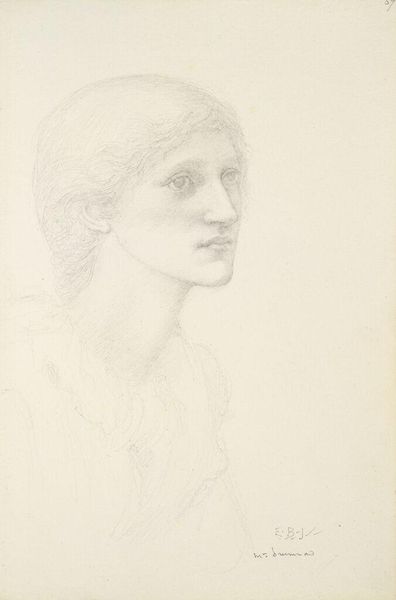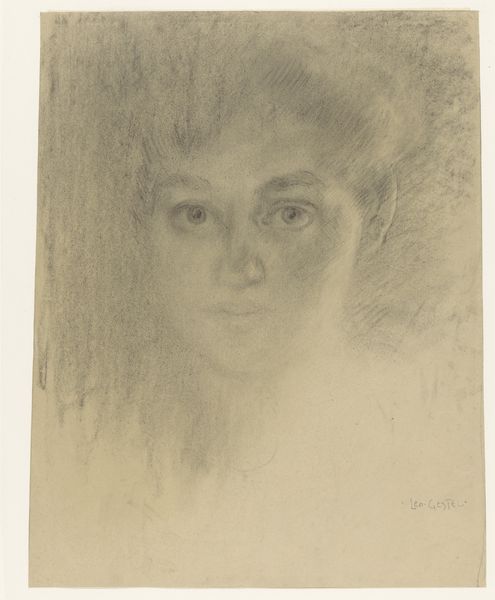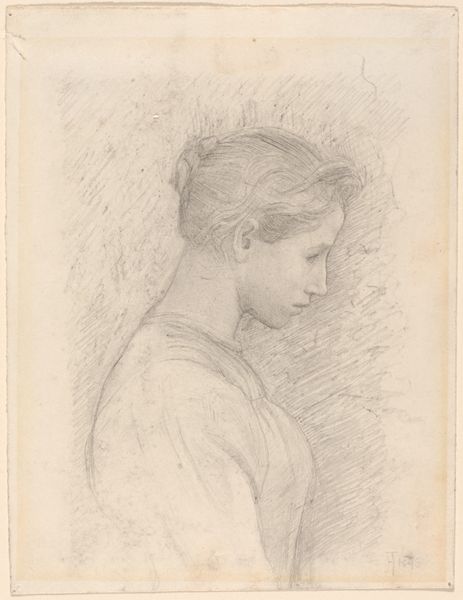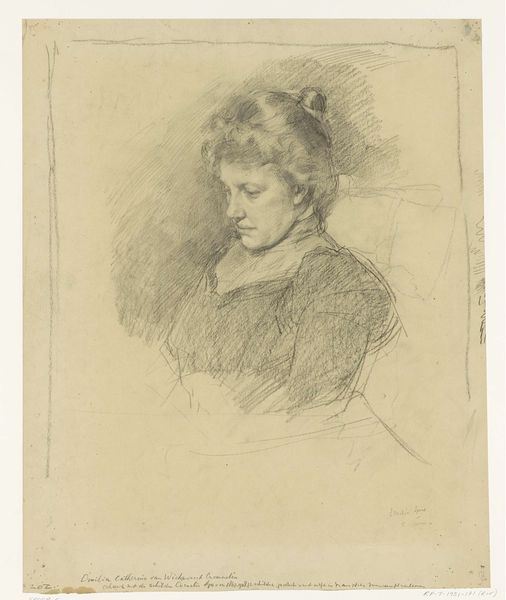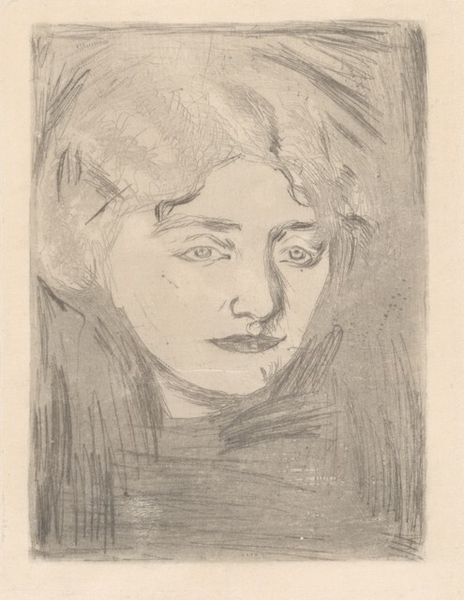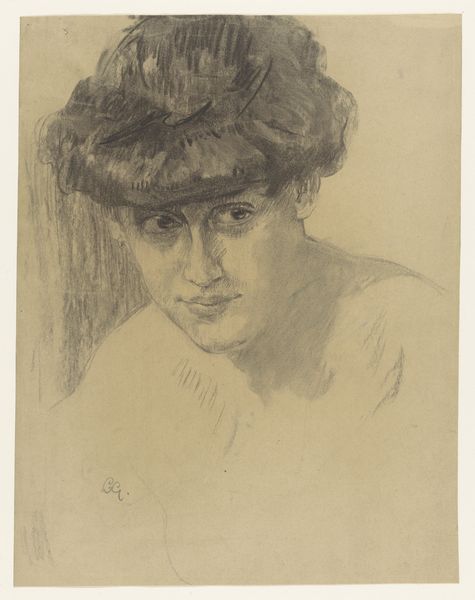
drawing, paper, pencil
#
portrait
#
pencil drawn
#
drawing
#
girl
#
pencil sketch
#
figuration
#
paper
#
pencil drawing
#
pencil
#
portrait drawing
#
pre-raphaelites
Dimensions: sheet: 10 x 7 in. (25.4 x 17.8 cm)
Copyright: Public Domain
Curator: Here we have Edward Burne-Jones’s "Portrait of a Young Girl," a pencil drawing on paper, created sometime between 1865 and 1880. Editor: There's a delicate melancholy about her gaze. A fragile quality heightened by the soft pencil work. Curator: The Pre-Raphaelites, with whom Burne-Jones was associated, frequently looked to earlier artistic traditions. What sort of cultural memory do you find echoed here? Editor: Something about the gentle, almost ethereal treatment reminds me of Renaissance portraiture, a romanticized view of childhood. But also, those large, searching eyes recall the visual language of innocence, perhaps hinting at a loss of it. Curator: Interesting observation! From a purely material perspective, consider the accessibility of pencil as a medium during this period. This was the height of industrial pencil production. Editor: Do you see that democratizing the subject of art, moving beyond aristocratic portrayals? Curator: Absolutely! The rise of a middle class, a wider range of patrons and subjects… Also the mass-produced paper. It underscores how the very *materials* enabled the creation and distribution of art and images in a changing social landscape. Editor: And within that shifting landscape, symbols of girlhood take on new resonance. Is she meant to represent purity, hope, or something more complex in the Victorian consciousness? Curator: These subtle visual cues create enduring narratives. Ultimately, the viewer’s interpretation engages in that conversation as well, influenced by the present as much as by the past. Editor: Indeed, it's about the dance between what the artist imbued and what we now project. This pencil drawing seems to quietly invite endless speculation. Curator: A compelling interaction between labor, material and symbolic meaning, I'd say.
Comments
No comments
Be the first to comment and join the conversation on the ultimate creative platform.
